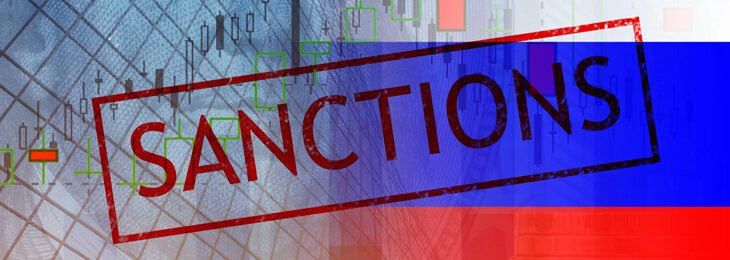
Financial institutions are now recognizing that the skills developed to fight money laundering can be applied in a much broader arena. Articles and seminars offered by ACAMS have described the benefits of combining or coordinating an institution's AML program with fraud prevention. The ability to identify, investigate and report suspicious activities, combined with the independence of ethical and professional judgment of the compliance officer has enabled the profession to garner a great amount of trust and respect. No longer is compliance seen as merely another "cost" center to meet regulatory requirements, but as a positive influence in the viability and even profitability of the financial sector. AML compliance now plays a major role in the integrity of the financial system, helping to prevent identity theft, screening employees who pose potential threats and preventing internal misconduct, among other activities.
With its demonstrated positive impact in the financial sector, it may be time that sectors, other than the financial, consider the benefits that the skills of AML specialists may offer. Public confidence in many institutions, corporate and political, has declined as scandals have eroded the trust that had previously been accorded to the directors and management of those institutions. Civil and criminal penalties, as well as class action lawsuits and boycotts, have begun to take their toll on many organizations forcing them to either close, restructure or institute reform measures. Wikileaks and whistleblowers have demolished the concept that secrets cannot be kept indefinitely—with enough motivation, anything and everything is potentially disclosable. Public reaction to illicit activities on the part of individuals, businesses, and even governments can be severe, resulting in significant losses, new regulations, or as in the case of some governments, wholesale change in leadership.
Some institutions are now acknowledging the need to develop internal systems to prevent their organization from becoming a victim of malfeasance, corruption, fraud or personal greed. While most businesses have implemented compliance programs to mitigate and reduce the likelihood of running afoul of government regulation in their respective industries, some have taken a broader approach, looking to not only meet the minimum requirements imposed by law but to demonstrate a higher regard as an integrity leader in their sector. An emerging profession, sometimes referred to as Integrity Management, provides advice to individuals and corporations on how to apply the highest ethical standards to every aspect of their business. The central proposition of Integrity Management is that companies have a strong interest, as well as a responsibility, to act with integrity at all times. Integrity Management is based on: (a) the increased perception that companies are more likely to succeed when they act with integrity and (b) increased awareness by company directors of the need to seek expert advice to help them align and incorporate high ethical standards with business strategy and integrate them across all operational functions.
The global access to information, primarily fueled by the Internet and other forms of instantaneous communication, has fostered a greater concern by the general public that their business and government affairs should be conducted with a high level of ethics and integrity. In response, governments have been called upon to legislate, and business leaders to innovate, to ensure that high ethical standards are put at the heart of business, government and industry.
Integrity Management is Intended to Fulfill:
- The demand for companies to respond to increasing awareness of ethical misconduct and resulting expectations for transparency and accountability;
- The requirement for companies to comply with a stricter legal framework and avoid prosecution for unethical behavior; and,
- The desire for executives and public officials to make their enterprises and programs serve as leaders and examples of responsible and sustainable development.
Public pressure and media attention have highlighted the need for organizations to increasingly be held responsible for unethical behavior including corruption, labor abuse and other adverse conditions in their own operations, in those of their subsidiaries, as well as for the actions of subcontractors acting on their behalf. Whether this pressure relates to sweatshops in the textile and shoe industries or corruption from misspent funds intended for development in the Middle East, the public is demanding proper accountability.
- Organizations which fail to address these demands now face a number of potential consequences, including:
- damaged corporate reputations and brand devaluation;
- lower employee moral;
- consumer boycotts or other economic sanctions;
- negative perceptions on behalf of investors;
- legal action; and,
- fines and imprisonment for management and directors.
Transparency International, an organization which assesses corruption levels and perceptions across the globe, has identified bribery and corruption as partly to blame for the recent global economic crisis. Some of the factors contributing to this include: serious lapses in corporate due diligence, governance and integrity, poor transparency and accountability and inadequate corporate integrity systems. The resulting worldwide recession has engendered the public's demand for businesses and governments to behave responsibly.
The range of organizations subject to financial reporting and transaction restrictions is expanding beyond traditional financial institutions. Recent initiatives such as the OECD Anti-Bribery Convention, the new Anti-Bribery Law in the UK, and the Foreign Corrupt Practices Act in the United States have applicability to any type of business. In addition, the Office of Foreign Assets Control has jurisdiction over a number of business activities in various subject jurisdictions, not only those related to financial transactions.
These initiatives are some of the reasons organizations are taking integrity seriously and incorporating appropriate measures within their internal structure and operations. As government agencies and businesses struggle to implement these programs, there is a need for professionals to provide services, either in a consulting or staffing capacity.
The role of Integrity Management professionals will enable such organizations to undertake a voluntary, proactive approach to ensure that the activities of a company or agency are conducted ethically and responsibly, with fairness, sustainability, and cultural sensitivity in the communities and societies within which they operate.
It should be noted that Integrity Management can be distinguished from regulatory compliance and risk management. Some organizations hold their compliance objectives with meeting the minimum required under law and regulation. Integrity Management takes this a step further by elevating the objectives from minimal compliance levels to being a leader in ethical responsibility. Similarly, Integrity Management seeks to adopt a broader and more proactive approach than that usually found in the more reactive field of risk management. Certainly, there are synergies between compliance, risk management and Integrity Management and many organizations may find it appropriate to exercise all three objectives in a single office or unit.
Specialists trained in Integrity Management skills can assist business and government leaders not only to avoid business practices that represent risk to an industry or economy, but also to bring such practices under scrutiny so that they can be brought to a quick resolution.
Some of the more common disciplines found in Integrity Management include: Knowledge acquisition methodologies, public relations practices, business risk management techniques, corporate social responsibility, compliance functions, insider threat detection and financial expertise. Integrity Management services can operate to: identify potential reputational and ethical threats for clients, and develop practical recommendations to mitigate those threats; make recommendations for, and carrying out due diligence on, local professional service suppliers; provide advice on accessing a local pool of talent, and address cultural considerations for building an effective local workforce; conduct detailed investigations into proposed local partners and key employees; prepare community needs reviews for better targeting of corporate social responsibility objectives; and, administer anti-and counter-corruption training and programs. Internal ethics audits can be conducted to measure the level at which the organization has implemented its ethics program.
Skills in these areas can help organizations to make responsible and ethical business decisions. Many of these skills and traits can be found in anti-money laundering and anti-fraud specialists. Such professionals are trained in risk identification and management, investigation of suspicious activities, compliance with regulations, training and internal auditing. Using lessons and best practices gleaned from applying such skills in the financial sector, the value of such expertise should be considered by organizations outside of the financial world.











So true, what business has ever succeeded by applying the ‘bare minimum’. The idea of effective Integrity Management within any business, financial or otherwise, seems so obviously pre-requisite to any long term successful venture in my opinion. It may seem a ‘pie in the sky’ attitude in light of all the rampant corruption you hear about around the world but I think optimism is the only way forward really…
Thank you for an interesting read Kenneth.